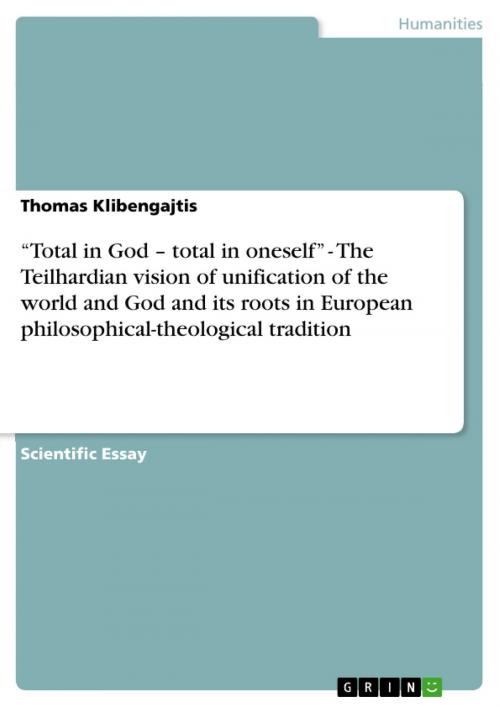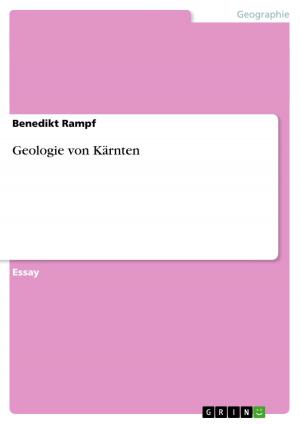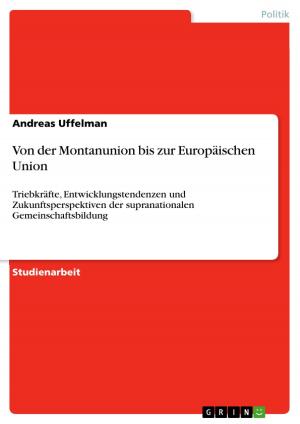'Total in God - total in oneself' - The Teilhardian vision of unification of the world and God and its roots in European philosophical-theological tradition
Nonfiction, Religion & Spirituality, Philosophy, History, Criticism, & Surveys| Author: | Thomas Klibengajtis | ISBN: | 9783656163305 |
| Publisher: | GRIN Verlag | Publication: | April 2, 2012 |
| Imprint: | GRIN Verlag | Language: | English |
| Author: | Thomas Klibengajtis |
| ISBN: | 9783656163305 |
| Publisher: | GRIN Verlag |
| Publication: | April 2, 2012 |
| Imprint: | GRIN Verlag |
| Language: | English |
Scientific Essay from the year 2006 in the subject Philosophy - General Essays, Eras, , course: International Teilhard Asia Conference 2006 Manila, Philippinen, August 200, language: English, abstract: The aim of the present article is to situate the Teilhardian vision of 'unification of all in Christ' (Eph 1,10) - together with the resulting panentheistic, evolutionary and mystical premises within the European philosophical-theological tradition, which I would like to call the 'unifying tradition'. In the first part of the article, I shall try to prove that the Teilhardian conception of the evolutionary development of all beings up to the point of Omega-Christ, generally understood as a departure from multitude (analysis) towards unity (synthesis), is a simple consequence of the philosophical-theological thought current that began with Parmenides, manifested itself in the thought of Platon, in Middle Platonism, in the conceptions of Plotinus, Nicholas of Cusa, Spinoza, Leibniz and in german idealism. The second part of the article presents the analogy between Teilhard de Chardin's Christocentric and eschatological vision of evolution and the Christian conceptions of the emergence and return of all beings from and to God. These conceptions were present in varying scope and degree in the thought of the Greek Church Fathers (Clement of Alexandria, Origen, Cappadocian Fathers) and later Christian authors (Pseudo-Dionysus Areopagite, Maximus Confessor, Eriugena). The part's final section will discuss whether Teilhard's view on the animation or spiritualization of matter, which implies a lack of difference between 'spirit' and 'body', represents a novelty in Christian thought or whether this view can be inscribed into the current of an orthodox 'unifying' theory. The third part of the article shall consider the degree to which European conceptions of multitude in unity, panentheistic visions of Christian neo-Platonism and the conception of gradual spiritualization of everything presented among others by Teilhard de Chardin can be implemented in the intercultural and interreligious dialogue between Christianity and Asian peoples and religions, for whom the vision of animation and spiritualization of everything is surely a close one. In the article's fourth and last part, I shall try to portray the practical implications arising from the 'unifying tradition', inscribed with Teilhard's thought, for the moral and spiritual development of us all.
Scientific Essay from the year 2006 in the subject Philosophy - General Essays, Eras, , course: International Teilhard Asia Conference 2006 Manila, Philippinen, August 200, language: English, abstract: The aim of the present article is to situate the Teilhardian vision of 'unification of all in Christ' (Eph 1,10) - together with the resulting panentheistic, evolutionary and mystical premises within the European philosophical-theological tradition, which I would like to call the 'unifying tradition'. In the first part of the article, I shall try to prove that the Teilhardian conception of the evolutionary development of all beings up to the point of Omega-Christ, generally understood as a departure from multitude (analysis) towards unity (synthesis), is a simple consequence of the philosophical-theological thought current that began with Parmenides, manifested itself in the thought of Platon, in Middle Platonism, in the conceptions of Plotinus, Nicholas of Cusa, Spinoza, Leibniz and in german idealism. The second part of the article presents the analogy between Teilhard de Chardin's Christocentric and eschatological vision of evolution and the Christian conceptions of the emergence and return of all beings from and to God. These conceptions were present in varying scope and degree in the thought of the Greek Church Fathers (Clement of Alexandria, Origen, Cappadocian Fathers) and later Christian authors (Pseudo-Dionysus Areopagite, Maximus Confessor, Eriugena). The part's final section will discuss whether Teilhard's view on the animation or spiritualization of matter, which implies a lack of difference between 'spirit' and 'body', represents a novelty in Christian thought or whether this view can be inscribed into the current of an orthodox 'unifying' theory. The third part of the article shall consider the degree to which European conceptions of multitude in unity, panentheistic visions of Christian neo-Platonism and the conception of gradual spiritualization of everything presented among others by Teilhard de Chardin can be implemented in the intercultural and interreligious dialogue between Christianity and Asian peoples and religions, for whom the vision of animation and spiritualization of everything is surely a close one. In the article's fourth and last part, I shall try to portray the practical implications arising from the 'unifying tradition', inscribed with Teilhard's thought, for the moral and spiritual development of us all.















